We are currently seeking a professional faculty member to be the Physical Science 100 Coordinator and Planetarium Director starting in Winter Semester 2020 (January 2020). If you are interested in applying or know of anyone else who would be interested, please let them know to apply before the posting closes on July 15, 2020.
The application can be found here or by visiting //yjobs.byu.edu/ and searching for faculty posting number 91388.
News and Events
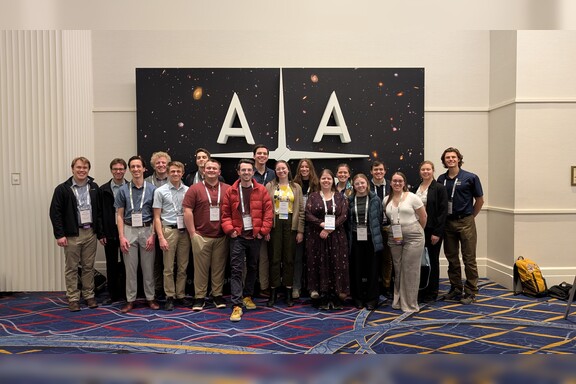
In early January 2025, a group of 16 students from Brigham Young University’s Physics & Astronomy Department showcased their research at the prestigious American Astronomical Society (AAS) in National Harbor, Maryland.

Dr. Gus Hart received the 2024 Karl G. Maeser Research and Creative Arts Award for his work in computational material science and his continued innovation in computational methods.

This winter, ten students in BYU’s new “Advanced Planetary Astrophysics” taught by Darin Ragozzine course gained hands-on experience in planetary science research, mastering interdisciplinary skills to prepare for future careers in astronomy.

Starting Fall 2025, BYU will offer a new Applied Physics: Data Science major that combines rigorous physics training with data science skills to prepare students for the growing demand in data-driven careers.

BYU's new Biological Physics course introduces students to the physics behind biological processes, fostering interdisciplinary skills to tackle complex biological questions.
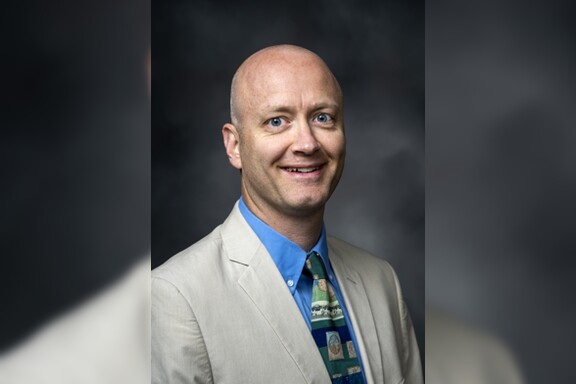
Dr. Kent Gee has been named the recipient of the Karl G. Maeser Distinguished Faculty Lecturer Award
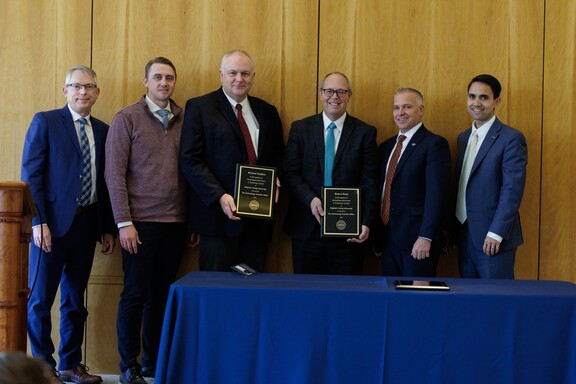
BYU Physics and Astronomy Professors Dr. Davis and Dr. Vanfleet recently received the 2024 award for outstanding achievement in technology transfer from the BYU Technology Transfer Office.
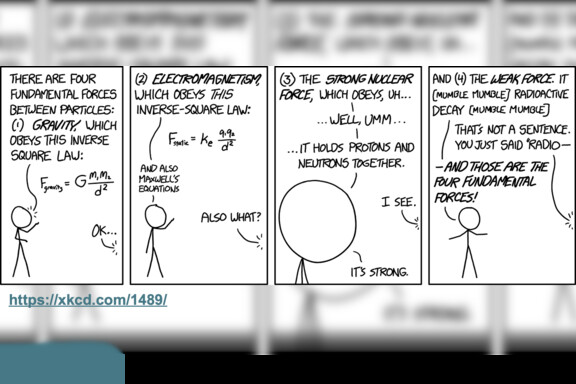
After 3 years of being offered as 513R, elementary particle physics is finally an official course and accepted for credit in the physics major!
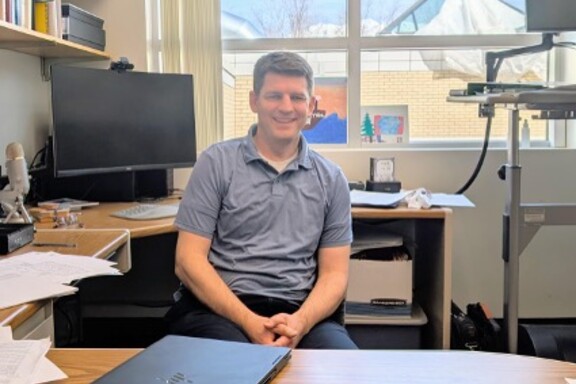
Dr. Michael Ware hopes to help students develop the skills to navigate discussion of science and religion

Brian Anderson and his students celebrated BYU's 150th birthday by blowing out candles using high-intensity focused sound waves.

The university's new electron microscopy facility opened in fall of 2025, offering atomic-level imaging and student-led research.
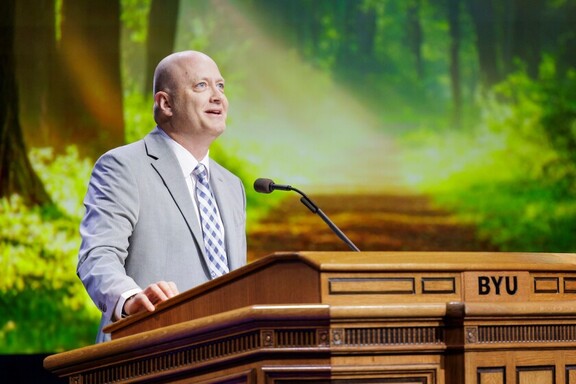
This year’s Karl G. Maeser Distinguished Faculty Lecturer, Kent Gee, delivered his forum address on the science of sound and how he and BYU students have contributed to significant research in the acoustics industry.

In July 2025, Drs. Branton Campbell and Harold Stokes (BYU Emeritus Professor) will receive the Kenneth N. Trueblood Award from the American Crystallographic Association for exceptional achievement in computational crystallography.

